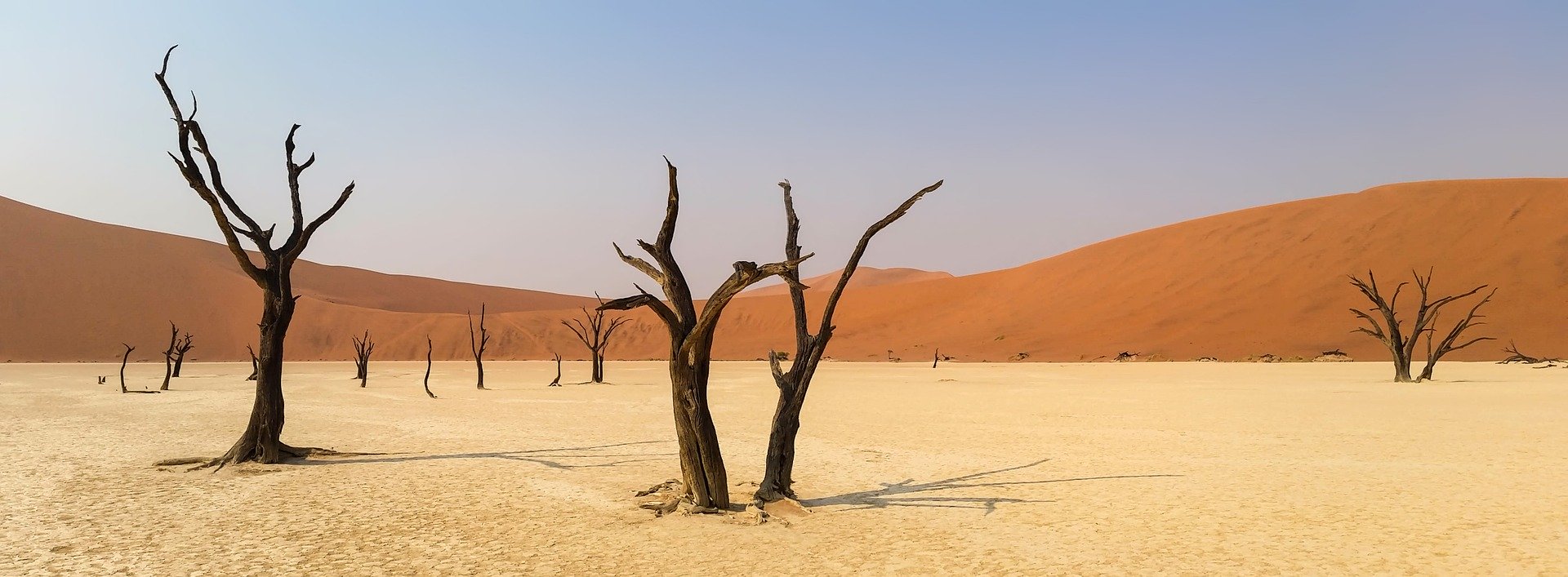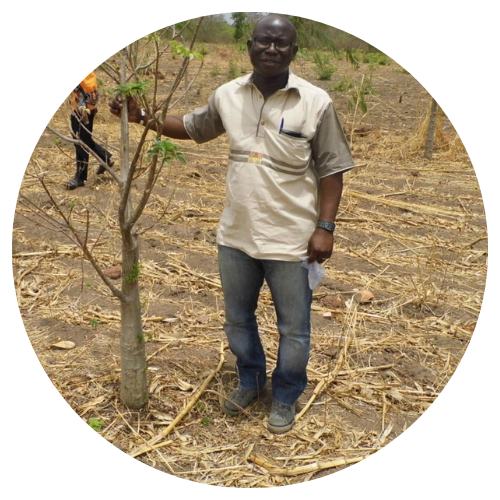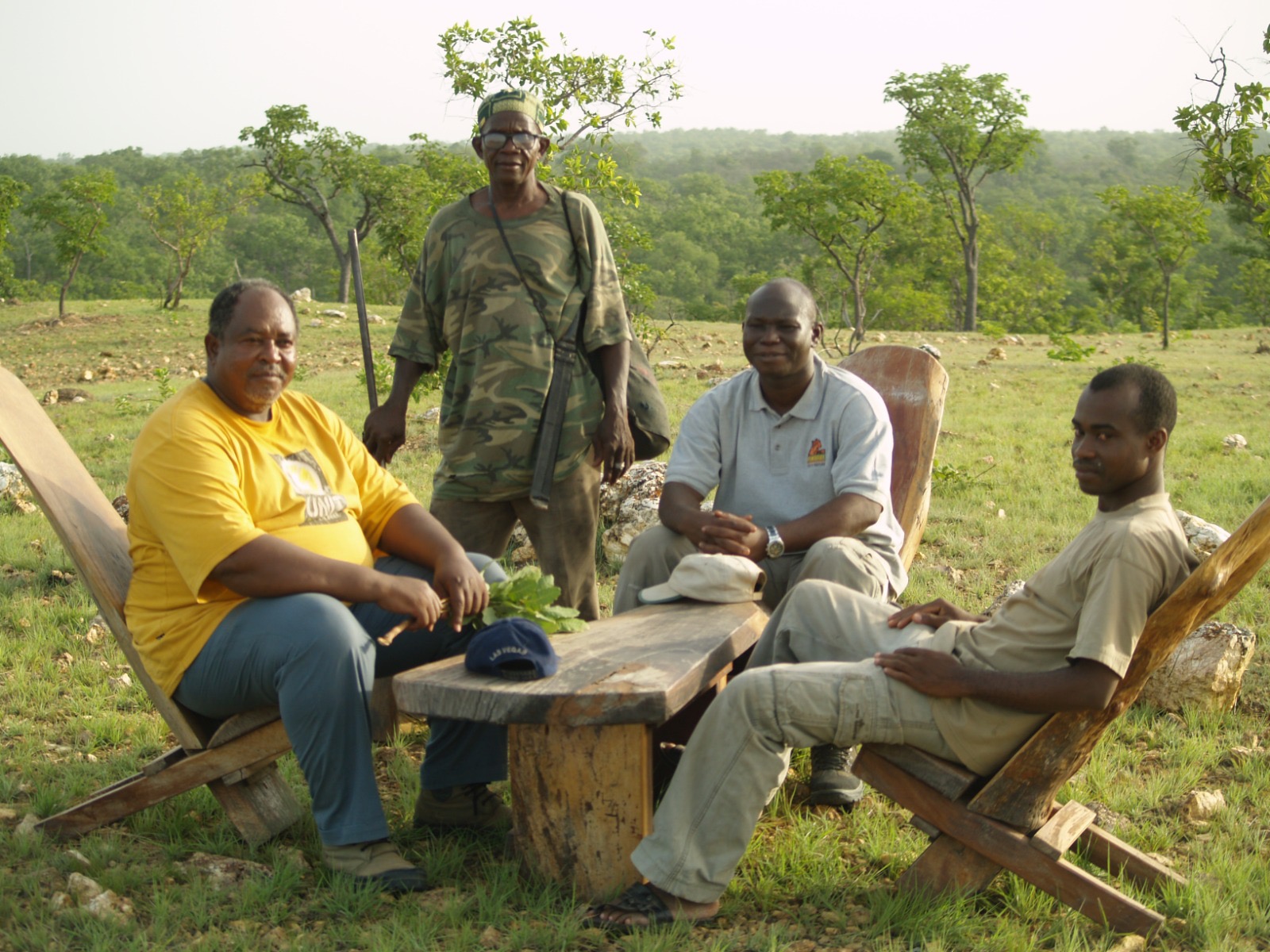
Interview with Mamadou Karama, Executive Director of AGEREF/CL in Burkina Faso
Published on 12 July 2023

- Mr Karama, you are the Executive Director of AGEREF/CL. Could you tell us a little about your association ?
The “Association de Gestion des Ressources Naturelles et de la Faune de la Comoé – Léraba”, abbreviated to AGEREF/CL, is a non-profit umbrella organisation established under Burkinabe law on 25 February 1999 and officially recognised on 5 January 2001. AGEREF/CL is made up of 17 village associations located in the Comoé-Léraba Classified Forest and Partial Wildlife Reserve (FCRPF/CL), a 125,000-hectare natural area in western Burkina Faso.
The aim of AGEREF/CL is to promote the sustainable management of natural resources and biodiversity in Burkina Faso through a participatory approach that combines conservation needs with the legitimate aspirations of communities for well-being. It is with this in mind that the State has entrusted it with the management of the Comoé-Léraba Classified Forest and Partial Wildlife Reserve, making it the first community concession.
Its areas of action are :
i) capacity building (awareness-raising, thematic training, environmental education, etc.);
ii) management and protection of natural resources (construction of infrastructure, regular maintenance of forest tracks, application of early fires, village surveillance, etc.); iii) ecological monitoring (monitoring of the impact of forest fires, etc.). );
iii) ecological monitoring (periodic wildlife inventories);
iv) development of natural resources (sport hunting, ecotourism, fishing, production of soumbala, shea butter, honey, small game farming);
v) adaptation to and mitigation of climate change (promotion of good agroforestry practices, renewable energy, restoration of degraded land, etc.);
vi) carrying out thematic studies;
vii) promotion of peace and social cohesion.
In terms of governance, AGEREF/CL is administered by a General Meeting, which is the supreme body, a Board, which ensures the continuity of the association between meetings, and an Executive Board, which is responsible for the day-to-day technical implementation of the association’s annual work plans and budget.
Initially based in the Cascades region, AGEREF/CL’s area of intervention has gradually expanded to the national level.
- When and under what circumstances did you personally decide to make a commitment to Nature?
Fresh from university, I was recruited in 1996 as a sociologist and member of the Multidisciplinary Mobile Team (EMP) of the Technical Support Unit for the implementation of the Participatory Management of Natural Resources and Wildlife Project (GEPRENAF). The aim of this cross-border project between Burkina Faso and Ivory Coast was to promote sustainable management of natural resources and biodiversity through participatory management that placed communities at the heart of the analysis, planning, implementation and monitoring-evaluation process.
I had just taken the plunge into the totally unknown but exciting world of conservation. Over the 6 years of this experience, I lived in close contact with the communities that I helped to gain participatory knowledge of their environment and to build their technical, organisational and financial capacities. I also provided them with advisory support in carrying out development work, monitoring and protecting the forest, inventorying wildlife, exploiting natural resources, and monitoring and evaluating actions.
Firstly, I became aware of the tangible and intangible links that communities have with nature and their willingness to commit to its conservation provided that they are involved in the governance and management system put in place.
Secondly, the good results achieved by the GEPRENAF project in terms of improving biological indicators after more than two years of hard work, finally convinced me that the degradation of natural resources was not inevitable and that it was possible to reclaim degraded territories if we managed to provide effective responses.
Thirdly, when I became Executive Secretary of AGEREF/CL, with the task of helping it to manage the FCRPF/CL concession that the State had just granted it, I quickly realised the fragility of our experience and its dependence on external shocks, which were just as decisive as the resources and internal efforts that we were making on a daily basis in the area. This realisation led me to understand the complexity of the situation and to take a holistic approach to nature conservation. From then on, it was no longer just a question of acting on the protected area we were managing, but also and above all of intervening on its immediate and distant periphery, where there were other players with interests that could converge and/or diverge with our management objectives. Left to their own devices, without local support, the communities were unable to manage their concession effectively and sustainably, despite their goodwill.
As you can see from this account, my commitment to nature conservation stems from three main factors: the observation that communities have an ecological ethic; the conviction that nature degradation is not inevitable and that renaturation is possible; and the realisation that communities need local technical support to help them in their efforts to conserve nature while remaining resilient to exogenous and endogenous shocks.
- What do you consider to be AGEREF/ CL’s greatest victory?
AGEREF/CL’s greatest achievement has been to operationalise the concept of community management of protected areas in Burkina Faso.
In short, the government of Burkina Faso and the World Bank, through the GEPRENAF project, have promoted the concept of community management of protected areas, and AGEREF/CL has made it operational by giving it tangible and comprehensible content in the Comoé-Léraba wildlife reserve.
The merit of this experience has been recognised at national and international level by the following awards:
– Chevalier de l’Ordre du Mérite du Développement Rural awarded to AGEREF/CL in 2012;
-Finalist in the UNDP Equator Prize 2012 in 2012;
-Laureate of the Forum Afrique 2013, 100 innovations pour un Développement Durable to its Executive Director;
-1st prize for honey at Burkina Faso’s National Farmers’ Day in 2013;
-1st prize for shea butter at the Cascades Regional Agro-Sylvo-Pastoral and Artisanal Fair in 2014;
-Chevalier de l’Ordre du Mérite Burkinabè for its Executive Director in 2020.
- Who is your current source of inspiration and why ?
My commitment and my ethics in favour of nature are the fruit of a number of encounters with personalities from the conservation world who have punctuated my professional career. There are many extraordinary and inspiring personalities, but I’d like to mention just a few :
Urbain Belemsobgo, Water and Forests Engineer and biodiversity expert: he was the one who guided my first steps into the unknown but exciting world of nature conservation at the start of my career. Convinced that the human, social and economic sciences had much to contribute to conservation, he helped me to quickly assimilate the main theoretical and practical concepts of conservation and, above all, his passion and sense of rigour in his work.
Emmanuel Nikiema, retired Senior Expert in Natural Resource Management at the World Bank, currently an independent consultant: With his wealth of experience and talent in the participatory management of land and natural resources, and his extraordinary human qualities, he helped me to understand that patience, flexibility and temperance are qualities that lead to success.
Jean Michel Pavy, Senior Expert in Protected Areas and Biodiversity Management at the World Bank, now retired, and a keen hunter: For him, commitment to nature conservation is above all an art of living that must be reflected in our daily actions. He encouraged me to take an entrepreneurial approach to the management of the Comoé-Léraba reserve, with a view to achieving autonomous management.
Francis Lauginie, Specialist in nature conservation and protected areas in Africa : An exceptional personality, he encouraged me and gave me invaluable advice when I was promoted to Executive Secretary of AGEREF/CL. Faced with my enthusiasm for promoting village surveillance as a way for communities to contribute to the protection of the Comoé-Léraba reserve, he found the right words to draw my attention to the possible dangers that could arise from such an initiative. He convinced me that, despite the pilot and innovative nature of our experiment and the favourable political and institutional environment we enjoy from the conservation authorities, all our actions should be legal. I can still fully appreciate the wisdom of the positions he has taken, especially after having experienced two successive incidents during village patrols, one of which resulted in a poacher shooting a village warden at point-blank range, and the other in the death of a poacher following a clash with the village wardens. As both incidents were dealt with by the courts, I still understand, today more than yesterday, the soundness of his warnings.
Laurent Mermet and Armelle Caron, teacher-researchers at AgroParisTech : They gave me a better understanding of the positioning of civil society organisations as minority agents of change and an insight into negotiation techniques in the field of public action on the environment. These new skills have cultivated in me a lucid outlook and a certain humility in terms of the capacity for action but also the limits of ecological NGOs and associations in the process of environmental change. Obviously, this has led to a certain efficiency in my day-to-day actions.
Finally, I would like to thank all my other companions whose names cannot be mentioned here, but who have helped to shape my ecological ethic.
- If you were an animal/plant you would be? why?
If I were an animal, I’d be an eagle because it embodies the fundamental principles that I try to respect in my daily leadership. These include :
– Choosing the right collaborators/partners;
– Focusing on your vision;
– Leaving your comfort zone to face new challenges;
– Perseverance in the face of difficult challenges;
– The ability to regenerate and reinvent yourself.
In short, this bird of prey symbolises strength, power, stability, endurance, perseverance and regeneration – qualities that are necessary for any leader who wants to make an impact in these areas.
- If you had extraordinary magical powers, what would you want to change ?
My most fervent wish would be to convince the public authorities to go beyond the rhetoric and commitments made at conventions and other international forums to take concrete action on conservation. This requires the allocation of substantial financial resources and the effective application of policies, programmes, projects and action plans by the States party to the various conventions and their technical and financial partners.
- What advice would you give to young Africans who, like you, want to get involved in voluntary work for the benefit of nature ?
To young Africans wishing to get involved in voluntary work for the benefit of nature, I would offer 3 major pieces of advice :
– Firstly, to train and educate themselves so that they have the necessary expertise, which will guarantee the success of the actions they will be called upon to carry out;
– Secondly, be patient, because a commitment to nature is a long-term commitment due to the very nature of nature, which requires several years of intervention before the effects of the actions taken can be seen objectively;
– Thirdly, to devote oneself entirely, because involvement in associations is a priesthood that requires altruism, availability and self-sacrifice.
If these tips are followed, there is no doubt that their commitment will be crowned with the expected success.
